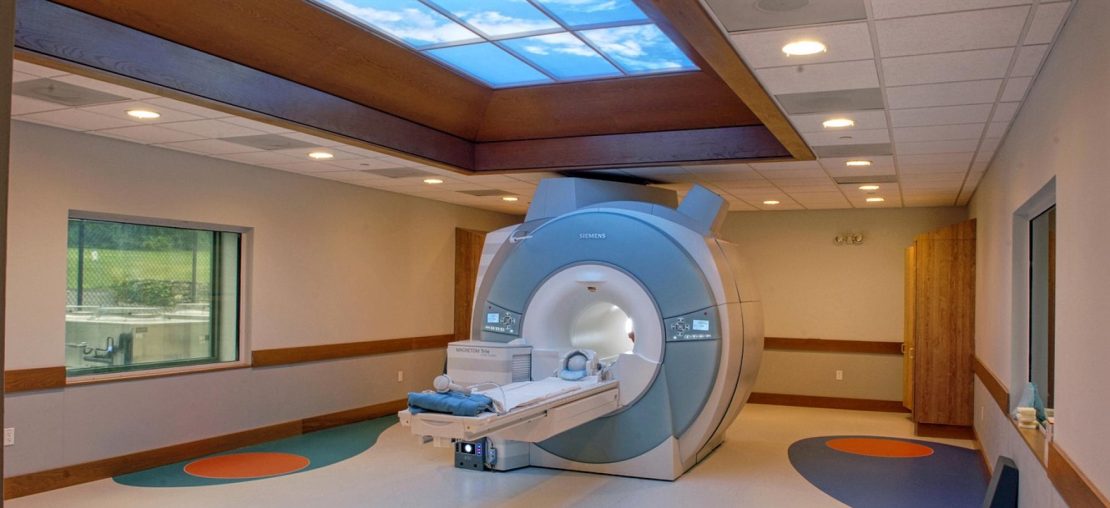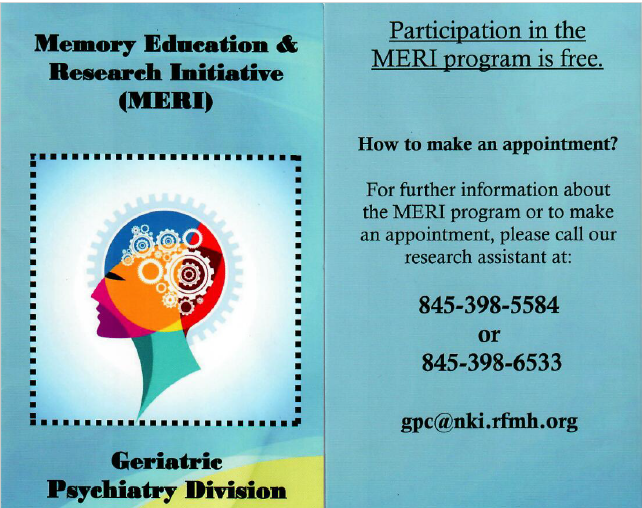About Us
Collaborating Divisions

Center for Biomedical Imaging and Neuromodulation
C-BIN focuses on the development and application of magnetic resonance imaging (MRI), Electroencephalography (EEG), and neuromodulation techniques for characterizing brain function and structure in order to improve understanding, diagnosing and treating mental illness. Headed by Michael Milham, MD, PhD, C-BIN is divided into three laboratories: Computational Neuroimaging (CNL), Design, Acquisition and Stimulation (DASL); and the Translational Neuroscience Laboratories (TNL). These subdivisions work together to understand the impact of psychiatric illnesses on developmental processes utilizing innovative imaging approaches to characterize brain maturation across the lifespan. The Computational Neuroimaging Laboratories research agenda involves the development of novel computational analysis and experimental techniques for determining how brain function and structure are impacted by mental illness and development. The Design, Acquisition and Neuromodulation Laboratory leverages optimized MRI protocols and experimental design to assess brain function and dysfunction. This includes the implementation of cutting-edge transcranial magnetic and electrical stimulation approaches to probe and potentially remediate neurocognitive dysfunction within lifespan and clinical populations.
The Translational Neuroscience Laboratories is a group of independent labs that all use combined studies in human and nonhuman species to investigate the neurobiological mechanisms that underlie human cognitive processes such as attention, sensory discrimination, and memory, as well as those that underlie cognitive dysfunction in psychiatric disorders. C-BIN is leading the efforts for the development and implementation of a 9.4 tesla magnetic resonance imaging system at NKI; it will be one of the most powerful imaging systems in the world for neuroscientists to study the human brain. This project is supported by the National Science Foundation (Award # 2117823) and the Office of Mental Health of New York State. To learn more, please visit our Resources page 9.4T MRI system.
The current Siemens TIM TRIO system is used for human and non-human primate imaging and spectroscopy studies. This equipment has several unique features, making it especially well suited for research into psychiatric illness, including state-of-the-art stimulus delivery and eye-tracking hardware and software (Resonance Technology and back projection), multinuclear capability, and multi-channel transmit/receive capability. The system has a 12-channel and a 32-channel head coil. The 32-channel head coil provides superior image quality. Visual stimulation is provided either by a back-projection zoom to a screen mounted at the rear of the bore. Audio stimulus presentation and patient communication are accomplished using stereo headphones and microphone provided by Siemens and Resonance technology. Several multi-button response units are available. An SR-Research Eyelink 1000 MR-Compatible Eye Tracking System is available to monitor saccades, pupil dialation, focal point, and other measures during the scan.
Geriatric Psychiatry Research Division
 The Geriatric Psychiatry Research Division, led by Nunzio Pomara, MD, staffs clinical and experimental research scientists whose work focuses on identifying neurobiological factors associated with vulnerability to drug-induced cognitive toxicity and the development of progressive cognitive decline and conversion to dementia, especially AD. Their research includes studies to determine if CNS Abeta disturbances are found in cognitively-intact elderly individuals with the depression and if they contribute to the increased risk for AD and to treatment-resistance to conventional antidepressants which have been observed in this population. Through the Memory Education Research Initiative (MERI), a collaborative effort with Rockland County, the Division provides free cognitive assessments to individuals with memory concerns and serves as a referral and educational source for local professional health workers. Our division also serves as a participating site for the federally-funded ADNI-2 study and for ongoing clinical trials that strive to help people with AD, as well as those at risk of developing AD. The Division includes 15 rooms, comprised of two separate examination rooms fully equipped with exam tables, ECG machines, and centrifuges for processing of biological samples. It also has two separate offices for neuropsychological assessment; one equipped with postural sway apparatus.
The Geriatric Psychiatry Research Division, led by Nunzio Pomara, MD, staffs clinical and experimental research scientists whose work focuses on identifying neurobiological factors associated with vulnerability to drug-induced cognitive toxicity and the development of progressive cognitive decline and conversion to dementia, especially AD. Their research includes studies to determine if CNS Abeta disturbances are found in cognitively-intact elderly individuals with the depression and if they contribute to the increased risk for AD and to treatment-resistance to conventional antidepressants which have been observed in this population. Through the Memory Education Research Initiative (MERI), a collaborative effort with Rockland County, the Division provides free cognitive assessments to individuals with memory concerns and serves as a referral and educational source for local professional health workers. Our division also serves as a participating site for the federally-funded ADNI-2 study and for ongoing clinical trials that strive to help people with AD, as well as those at risk of developing AD. The Division includes 15 rooms, comprised of two separate examination rooms fully equipped with exam tables, ECG machines, and centrifuges for processing of biological samples. It also has two separate offices for neuropsychological assessment; one equipped with postural sway apparatus.
Emotional Brain Institute


The EBI is a collaborative research initiative comprised of a multi-disciplinary group of researchers focusing on emotion and its impact on the mind and behavior across the lifespan. Researchers investigate the origins of normal and pathological emotions from the level of behavior to neural systems, cell activity, molecules and genes. Using state of the art approaches in their study of the brain, mind and behavior, researchers explore how emotional processing changes across the lifespan including during normal aging and dementia.
